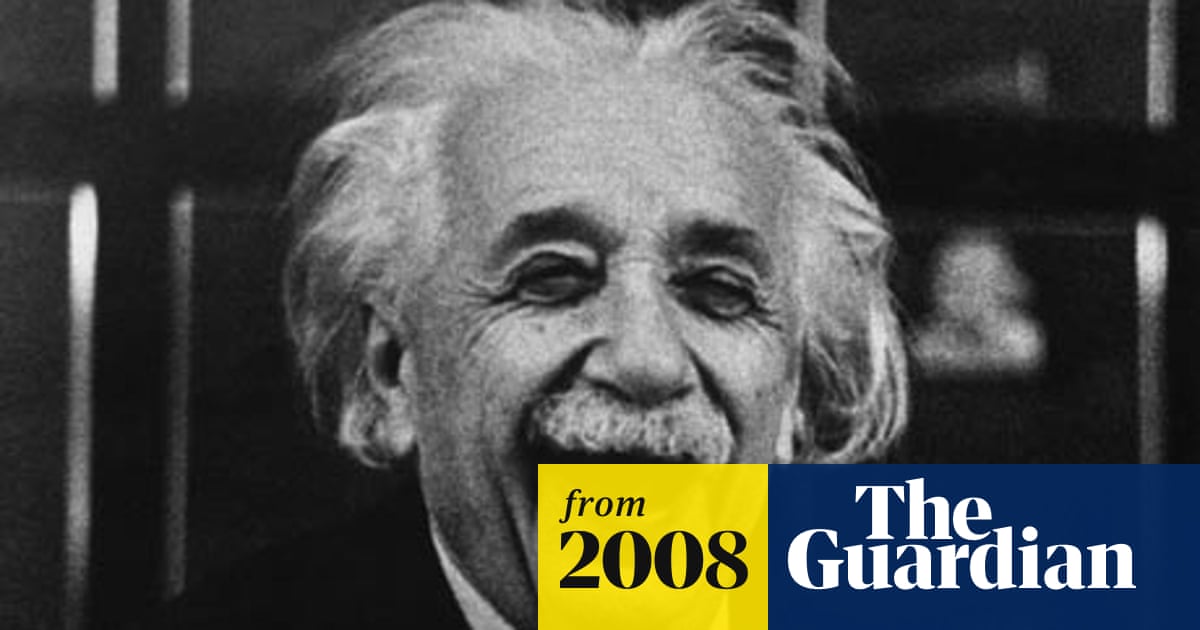Mister Apoc
Demigod of Troll Threads
Hey guys, just wanted to get your thoughts on this As you all know, Einstein was certaintly not a theist, but he also wasn't (I would argue) a strict materialist, he certaintly talked many times about a general "cosmic religious" feeling that he had about the nature of reality and he of course subscribed to "Spinoza's God"
some of what he has said
"The very fact that the totality of our sense experiences is such that by means of thinking (operations with concepts, and the creation and use of definite functional relations between them, and the coordination of sense experiences to these concepts) it can be put in order, this fact is one which leaves us in awe, but which we shall never understand. One may say 'the eternal mystery of the world is its comprehensibility.' It is one of the great realizations of Immanuel Kant that the postulation of a real external world would be senseless without this comprehensibility.
"In speaking here of "comprehensibility," the expression is used in its most modest sense. It implies: the production of some sort of order among sense impressions, this order being produced by the creation of general concepts, relations between these concepts, and by definite relations of some kind between the concepts and sense experience. It is in this sense that the world of our sense experiences is comprehensible. The fact that it is comprehensible is a miracle."
"I have repeatedly said that in my opinion the idea of a personal god is a childlike one. You may call me an agnostic, but I do not share the crusading spirit of the professional atheist whose fervor is mostly due to a painful act of liberation from the fetters of religious indoctrination received in youth. I prefer an attitude of humility corresponding to the weakness of our intellectual understanding of nature and of our own being."[
He wrote this in a letter
"The fanatical Atheists are like slaves who are still feeling the weight of their chains which they have thrown off after hard struggle. They are creatures who – in their grudge against traditional religion as the 'opium of the masses' – cannot hear the music of the spheres."
"A new type of thinking is essential if mankind is to survive and move to higher levels."
Although he did not believe in a personal God, he indicated that he would never seek to combat such belief because
"such a belief seems to me preferable to the lack of any transcendental outlook
He defintelly doesn't hold back, but is his perception here misleading? One thing that I have noticed just studying the early pioneers of quantum mechanics is how many of them would not fit under the typical "strict materialist" label that one would assume. Bohr, Schrodinger, Heisenberg, Pauli etc. were certaintly not Christian theists but they had an almost spiritual and religious fervor to their outlook of reality. Dirac is probably the closest to being the hardcore atheist of that group.
seems like Einstein though Atheism as an identity or "ideology/movement" i.e professional atheists was cringe and stupid
some of what he has said
"The very fact that the totality of our sense experiences is such that by means of thinking (operations with concepts, and the creation and use of definite functional relations between them, and the coordination of sense experiences to these concepts) it can be put in order, this fact is one which leaves us in awe, but which we shall never understand. One may say 'the eternal mystery of the world is its comprehensibility.' It is one of the great realizations of Immanuel Kant that the postulation of a real external world would be senseless without this comprehensibility.
"In speaking here of "comprehensibility," the expression is used in its most modest sense. It implies: the production of some sort of order among sense impressions, this order being produced by the creation of general concepts, relations between these concepts, and by definite relations of some kind between the concepts and sense experience. It is in this sense that the world of our sense experiences is comprehensible. The fact that it is comprehensible is a miracle."
"I have repeatedly said that in my opinion the idea of a personal god is a childlike one. You may call me an agnostic, but I do not share the crusading spirit of the professional atheist whose fervor is mostly due to a painful act of liberation from the fetters of religious indoctrination received in youth. I prefer an attitude of humility corresponding to the weakness of our intellectual understanding of nature and of our own being."[
He wrote this in a letter
"The fanatical Atheists are like slaves who are still feeling the weight of their chains which they have thrown off after hard struggle. They are creatures who – in their grudge against traditional religion as the 'opium of the masses' – cannot hear the music of the spheres."
"A new type of thinking is essential if mankind is to survive and move to higher levels."
Although he did not believe in a personal God, he indicated that he would never seek to combat such belief because
"such a belief seems to me preferable to the lack of any transcendental outlook
He defintelly doesn't hold back, but is his perception here misleading? One thing that I have noticed just studying the early pioneers of quantum mechanics is how many of them would not fit under the typical "strict materialist" label that one would assume. Bohr, Schrodinger, Heisenberg, Pauli etc. were certaintly not Christian theists but they had an almost spiritual and religious fervor to their outlook of reality. Dirac is probably the closest to being the hardcore atheist of that group.
seems like Einstein though Atheism as an identity or "ideology/movement" i.e professional atheists was cringe and stupid
Last edited:


